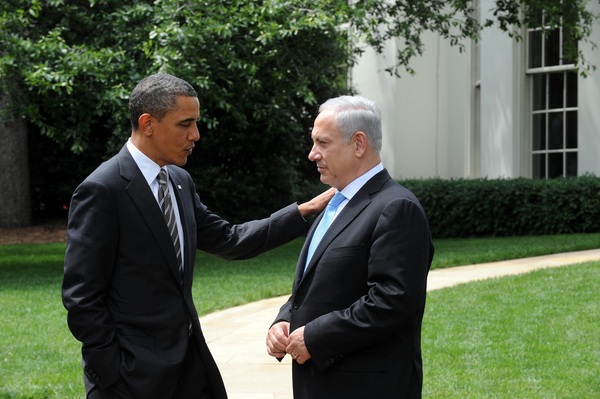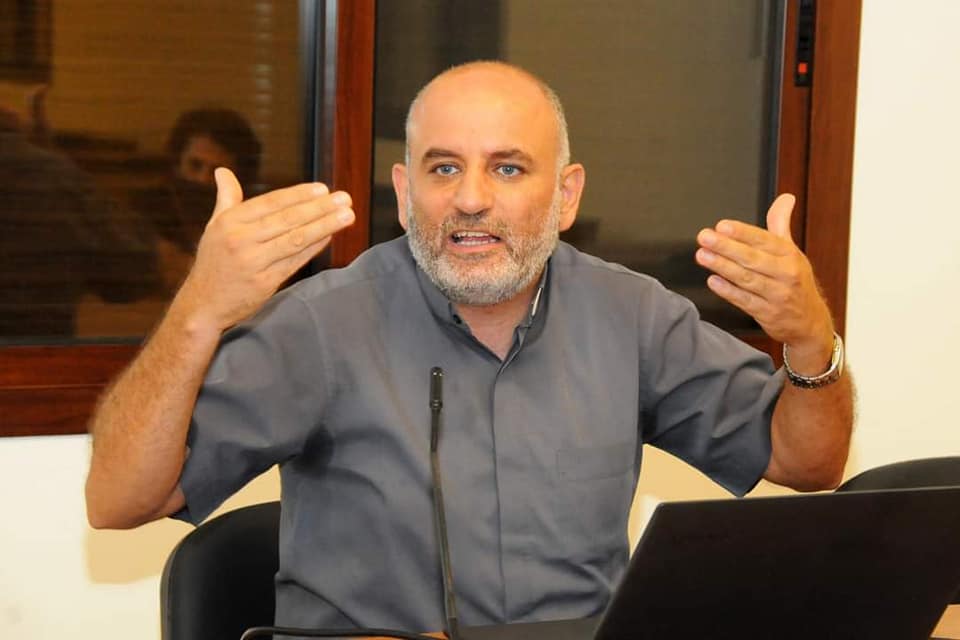Obama reinforces Iran win
Yitzhak Benhorin/ Associated Press/Ynetnews / 09.08.15/ Israel News
If the 41 senators now openly supporting the nuclear deal stick to their guns, those opposing it in Congress will not be able to pass a resolution of disapproval.
WASHINGTON – Democrats clinched the crucial US Senate votes Tuesday to block passage of a disapproval resolution against the Iran nuclear accord, an outcome that would be a major victory for President Barack Obama against united Republican opposition.The declarations of support by three Democrats, bringing the total to 41, should block those who oppose or might oppose the deal – 54 Republicans and three Democrats – from passing a resolution of disapproval that would require the president to use his veto power.
Early on Tuesday, Sen. Joe Manchin announced his opposition to the deal, a surprise “no” vote from a moderate Democrat who had sounded like he favored the pact. But that setback for supporters was erased within the hour as three Democrats seen as potential “no” votes on the deal all announced they would support it. Those senators were Richard Blumenthal, Ron Wyden and Gary Peters.
But amid fast-paced developments as lawmakers returned to Washington from their five-week summer recess, supporters of the deal stopped short of declaring victory. That was because it remained uncertain whether all 41 Democratic and independent senators now on record in favor of the deal would also support delaying tactics to block a final vote on the disapproval resolution.
Still, the complicated machinery of Congress was turning in favor of the president on his top foreign policy priority, despite Republican control of both the House and the Senate. Already supporters of the deal have the votes in hand to uphold Obama’s veto of a disapproval resolution, should that become necessary. Blocking the disapproval resolution with a delay, while ideal from the White House view because it would spare Obama from having to use a veto, would not change the ultimate outcome.
The agreement struck by Iran, the US and five world powers in July will provide Iran hundreds of billions of dollars in relief from international sanctions in exchange for a decade of constraints on the country’s nuclear program. The deal sets Iran back so that it is at least a year away from being able to produce enough nuclear material for a weapon, before the restrictions ease after a decade. Iran is currently assessed to be only 2 to 3 months away from being able to enrich enough uranium for a bomb, if it decides to do so.
“This agreement will stand,” Senate Minority Leader Harry Reid, a Democrat, said in a speech Tuesday at the Carnegie Endowment for International Peace. “America will uphold its commitment and we will seize this opportunity to stop Iran from getting a nuclear weapon.””The fundamental question for me is what this agreement means for the prospects of Iran getting a nuclear bomb,” Wyden said. “This agreement with the duplicitous and untrustworthy Iranian regime falls short of what I had envisioned, however, I have decided the alternatives are even more dangerous.”
Republicans strongly oppose the pact, saying it makes dangerous concessions to Iran, and hope to push through a resolution of disapproval this week. Leaders of Israel have been strongly lobbying against the deal they say could empower Iran, but had succeeded in winning over only three Senate Democrats, albeit all of them prominent figures – Chuck Schumer k, Robert Menendez and Ben Cardin, the top Democrat on the Senate Foreign Relations Committee. Manchin added his name to that list Tuesday. But the majority of Democrats have swung behind the president, and predictions that the issue would dominate discussion during Congress’ August recess never came to pass as political headlines were largely overtaken by Donald Trump’s presidential candidacy. The two topics will converge on Wednesday, though, when Trump joins Republican Sen. Ted Cruz for a rally to oppose the deal – the same day Hillary Rodham Clinton, the Democratic presidential front runner, delivers a speech supporting it.
Perhaps the most difficult political decision regarding the deal was that made by Representative Debbie Wasserman Schultz, chairwoman of the Democratic National Committee. One the one hand, she is somewhat obligated to back the president, but represents a mostly Jewish county in Miami that mostly opposes the agreement. She ultimately came out in favor of the deal.
Netanyahu to EU: Stop pressuring us into agreements that endanger our existence
TOVAH LAZAROFF/J.Post/09/09/2015
The European Union must stop pressuring Israel to enter dangerous agreements that threaten the future of the Jewish state, Prime Minister Benjamin Netanyahu said in Jerusalem on Monday night. Europe “seeks to unilaterally press Israel into agreements that will endanger our very existence and therefore your very defense,” Netanyahu publicly told visiting European Council President Donald Tusk prior to holding a private discussion with him. Netanyahu said he was glad to see Tusk both as a representative of the EU and as a personal friend.“I’ve known you for many years. You’ve been a great friend of Israel, of the Jewish people, and may I say of me personally,” Netanyahu told Tusk.“We welcome Europe,” said Netanyahu, before quipping in an off-the-cuff remark, “Does Europe welcome Israel?”
Netanyahu told Tusk he hoped that together they could find a way to improve relations between Israel and Europe. Israel, which has strong economic and cultural ties with several European countries, is often at odds with them on diplomatic issues such as Iran’s nuclear program and the stalemate Israeli-Palestinian peace talks. In addition, Israel has been concerned by EU plans to publish legal guidelines that would help its member states affix consumer labels to products produced in West Bank settlements. The guidelines are non-binding, however Israel fears that they could be used to further encourage people boycott the Jewish state. “I find it perplexing that some in Europe are still possessed by the anti-Israeli obsession,” Netanyahu lamented. Hundreds of thousands of people are being displaced and slaughtered in the Middle East, said Netanyahu. “But some in Europe believe the only thing they have to do is to press, boycott and vilify the Middle East’s only true democracy, Israel,” Netanyahu stated. “I find this inexplicable but I find it also to the detriment of Europe,” he added.
Tusk assured Netanyahu that he need not fear a European boycott. “I think that we have to avoid words like boycott because for sure this is not the intention of Europe. And I am absolutely sure that no country in Europe wants to boycott Israel,” Tusk said. Netanyahu responded, “I am glad to hear it.”Both Israel and Europe face the common danger posed by extremist groups such as ISIS as well as by Iran’s nuclear and military weapons program., Netanyahu said.
“Iran is building ICBMs for Europe, not for us. We’re on the same continent. They can reach us already. They’re building inter-continental missiles for Europe and for the United States,” Netanyahu said. Tusk spoke in favor of the deal to curb Iran’s nuclear program that was hammered out between Tehran and the six world powers; the US, Russia, China, Germany, France and Great Britain. Israel believes the deal leaves Iran with the capacity to develop an atomic bomb as well as emboldens its support of worldwide terrorism which continues to threaten the Jewish state. But Tusk said Europe believed the deal could lead to a breakthrough in relations between Iran and the international community.
“The real break in the long term perspective through will not be sustainable if Iran does not change its attitude toward Israel, the security of Israel must remain one of our European priorities. It is also my wish that the voice of Israel in the debate of the nuclear agreement with Iran is both heard and respected in Europe,” said Tusk. Netanyahu told Tusk that Israel and Europe should be working together to help improve life for people in Africa and to halt the dangerous extremism that is sweeping the Middle East.“I want to discuss with you, as I’ve discussed with other European leaders and will discuss with them, how Europe and Israel can cooperate to assure the progress of modernity for all the peoples of the Middle East, for peace with all our neighbors,” Netanyahu said. Tusk said that one way to address the challenges in the Middle East is to revive the peace process between Israelis and Palestinians that has been frozen since April 2014.He spoke just days after EU foreign policy chief Frederica Mogherini announced that the Quartet planned to meet with Arab states on September 30, on the sides lines opening of the UN General Assembly in New York. “The EU sees no alternative to a negotiated two-state solution,” Tusk said. He ended by speaking of the close ties between Israel and Europe.
“Israel matters greatly to the EU. It is Israel’s friend and partner in good times and in bad times,” Tusk said.



















